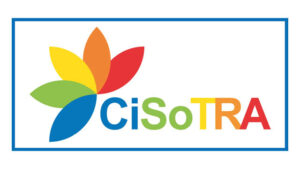Wir freuen uns, auf die Veröffentlichung des Buches Towards the Actor Coordination Model: A Case of Unaccompanied Minor Migrants in Transition to Adulthood (ToKnowPress, 2021) hinzuweisen. Der Sammelband vereint internationale...
Mehr lesen
Civil Society for social inclusion of unaccompanied minors in transition to adulthood – learning communities for shaping transition interfaces
Funding information

Project duration: 12/2017 – 03/2021
Project code number: 592154-EPP-1-2017-1-SI-EPPKA3-IPI-SOC-IN
Funding guideline: KA3: Social inclusion through education, training, and youth
Project concept
Initial situation
Refugee minors find themselves in a precarious situation when they reach the age of 18. As long as they are minors, they are embedded in the youth welfare system and are usually supported by educational professionals in small groups or foster families. When they enter adulthood, they suddenly have to move into asylum accommodation and have other contact persons. In addition, different laws apply to them, e.g. they are subject to the formal asylum procedure and thus again have an uncertain residence status.
The responsibilities and perspectives of the actors in the various authorities and institutions responsible for young refugees are often not sufficiently coordinated. Holistic transition management is often lacking and the qualifications of the professionals take too little account of the action logics of the neighbouring areas.
It was therefore necessary to develop a model of action for a coordinated regional inclusion policy and a corresponding qualification of the professionals.
Target groups and their benefits
The CisoTra project was aimed at decision-makers and professionals in the policy fields responsible for minors and young refugees. The aim is to raise awareness and encourage them to adopt and develop best practices in regional policy coordination and action planning. This will improve the situation of young refugees by creating better transitions between individual measures.
Project goal
The CiSoTRA project aimed to develop and test innovative strategies and good practices for the social integration of unaccompanied refugee minors up to early adulthood. A good transition from the youth welfare system to the general employment and qualification system is crucial here. There is a need for qualification of those working full-time with unaccompanied minors, stronger cooperation and exchange of experience between institutions.
Role of ISOB
ISOB was responsible for the initial study, supported the development of the training modules and was responsible for internal quality assurance and evaluation.
Products and publications
- Conduct an initial study on the state of current practice and good practice
- Organisation of an international and regional exchange of experiences of refugee aid professionals
- Development and implementation of a training concept for decision-makers and full-time supporters of unaccompanied young people with refugee experience using a learning management system
- Development and implementation of training and experiential workshops for refugee youth under and over 18 years of age, including documentation of their needs at various points along the integration pathway
- Develop a model and recommendations for better social integration of unaccompanied minors and young adults through better coordination between the institutions and organisations involved and disseminate these results
Partnerships
Partners
- Slovenia (project coordination): International School of Social Science and Management Studies in Celje
- Italy: Pegaso Online University in Naples
- Italy: Osservatorio Centro Studi Informática Giuridica Taranto
- Greece: Action Synergy SA in Athen
- Turkey: Istanbul Bilgi University
- Germany: Institut für sozialwissenschaftliche Beratung GmbH
Associated partners
- Germany: City of Regensburg
- Germany: City of Munich
- Germany: Verein für sozialwissenschaftliche Beratung und Forschung e. V.
- Germany: Fulda University of Applied Sciences (Prof. Dr. Bettina Stoll)
Website and social media
News
Vortrag auf der MakeLearn & TIMM 2021
Am 21. Mai 2021 hielt unser Vorstand Alexander Krauß gemeinsam mit Andrej Koren und Anica Novak von der Internationalen Hochschule für sozialwissenschaftliche und Managementstudien (ISSBS, Slowenien) einen Vortrag über die...
Mehr lesenAbschlusskonferenz zum Projekt CiSoTRA
Die internationale Abschlusskonferenz zu unserem Erasmus+ Projekt „Civil Society for social inclusion of unaccompanied minors in the transition to adulthood – learning communities for shaping transition interfaces (CiSoTRA)“ fand am...
Mehr lesenThe project was successfully completed and positively evaluated.
We will be happy to provide you with the project results on request. For further information, please contact our Team.
